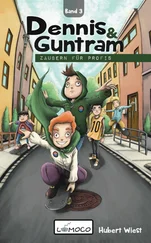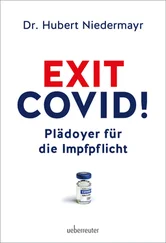Hubert Aquin - Next Episode
Здесь есть возможность читать онлайн «Hubert Aquin - Next Episode» весь текст электронной книги совершенно бесплатно (целиком полную версию без сокращений). В некоторых случаях можно слушать аудио, скачать через торрент в формате fb2 и присутствует краткое содержание. Год выпуска: 2001, ISBN: 2001, Издательство: McClelland & Stewart, Жанр: Современная проза, на английском языке. Описание произведения, (предисловие) а так же отзывы посетителей доступны на портале библиотеки ЛибКат.
- Название:Next Episode
- Автор:
- Издательство:McClelland & Stewart
- Жанр:
- Год:2001
- ISBN:9781551996240
- Рейтинг книги:3 / 5. Голосов: 1
-
Избранное:Добавить в избранное
- Отзывы:
-
Ваша оценка:
- 60
- 1
- 2
- 3
- 4
- 5
Next Episode: краткое содержание, описание и аннотация
Предлагаем к чтению аннотацию, описание, краткое содержание или предисловие (зависит от того, что написал сам автор книги «Next Episode»). Если вы не нашли необходимую информацию о книге — напишите в комментариях, мы постараемся отыскать её.
is a disturbing and yet deeply moving novel of dissent and distress. As he awaits trial, a young separatist writes an espionage story in the psychiatric ward of the Montreal prison where he has been detained. Sheila Fischman’s bold new translation captures the pulsating life of Aquin’s complex exploration of the political realities of contemporary Quebec.
Next Episode — читать онлайн бесплатно полную книгу (весь текст) целиком
Ниже представлен текст книги, разбитый по страницам. Система сохранения места последней прочитанной страницы, позволяет с удобством читать онлайн бесплатно книгу «Next Episode», без необходимости каждый раз заново искать на чём Вы остановились. Поставьте закладку, и сможете в любой момент перейти на страницу, на которой закончили чтение.
Интервал:
Закладка:
Listening to his story I feel giddy. H. de Heutz seems so overwhelmed and genuinely moved that I let down my guard. Yet it’s obvious that he’s having a joke at my expense. This entire cock-and-bull story bears a strange resemblance to the one I told him this morning at the Château d’Echandens when I was unilaterally disarming him. Right now H. de Heutz is spinning exactly the same convoluted yarn. It’s plagiarism. Does he really think I’ll swallow it?
“I’m not lying. I went to Basel first. I thought that with my Mauser, I’d work miracles and become a high-class thief overnight: impeccable, polite with cashiers, unpunished to the end. I thought all I’d need was this weapon and my despair, and in a few days I’d make my fortune and send money orders to my wife. I lived in that state for a few days but I never stole anything, never sent a penny to my wife. Every day I’d think: ‘Today’s the day. Today, I’ll succeed.’ And I’d tell myself that soon, when I was rich, I’d bring my wife and children to Switzerland. We could settle here happily, rent a villa in the mountains in the Val d’Hérens near Evolène. I know a wonderful spot around there. I want to live there with my wife and children. You can’t imagine how I long to see those boys. I don’t even know if my wife’s been able to get her hands on any money. When I left Liège I had debts, a mass of debts she didn’t know about. Could she have grown discouraged and killed herself, after strangling the children? I’m afraid. I don’t know what to do. I wonder if I’ll ever see my two little boys again. They probably expect me to turn up at dinner-time every evening. When I was in Liège, I always came home from the office at the same time. They must be asking their mother when I’ll be back, and she must be telling them that I’ve gone away for my work or that I’m dead. It would be good, actually, if she told them I’d died in the war and that I would never come back to play with them …”
“Do you think I’m an idiot, Monsieur de Heutz? Do you think you can distract me with that fairy tale? And on top of everything else you’ve got the gall to serve me up the same story I told you this morning … Really, you’re piling it on a little too thick for my liking, to say nothing of the fact that you’ve got absolutely no imagination!”
As I say that, he bursts out sobbing with such sincerity that it’s unsettling. H. de Heutz really is crying like a sorrowing father, like a man who’s overwhelmed by pain and doesn’t have the strength to face up to life. But I keep reminding myself that this pathetic individual is recounting a soap opera for the sole purpose of escaping (but how?) from the trap where I’m holding him. My job is to stay alert in this preposterous competition and to remember that only one design underlies his performance: to divert my attention, dull my reflexes, instill just enough doubt in me to make me relax my vigilance for as little as a fraction of a second, and to take advantage of it. I constantly have to refute my distress at the sight of him so despondent, his face distraught with emotion and bathed in tears. The man is an impostor: F.M. de Saugy, von Ryndt, H. de Heutz: they’re one and the same person. H. de Heutz is an enemy I’ve brought here for just one reason: to shoot him in cold blood. Nothing in the world must divert me from my plan. Nothing! Particularly not this parade of emotions being put on by our Africanist. In all sincerity, I acknowledge that H. de Heutz is a consummate artist. He has a diabolical gift for falsifying what is plausible; if I weren’t on guard, he’d have roped me in, maybe even convinced me that he’s my brother, that we were destined to meet and understand each other. Really, I’m dealing with the devil.
“All right. This performance has gone on long enough. Don’t wear yourself out over nothing. I don’t believe one word you’ve told me …”
“I have no reason to make anything up. I know that it’s over for me and that in a few seconds — at the time you’ve chosen — you’ll kill me like a dog. I don’t want to live in any case, I haven’t got the strength …”
And with that he starts to cry again desperately. Though I consider him to be the last of the liars, a contemptible tool of the counter-revolution, I have to acknowledge that he really is crying; I can see it.
“I’ll never see my children again; I don’t want to, I don’t deserve to … The last time I was with them, I cried. That’s the image they have of their father. I was distraught. I’d lost my job but I hadn’t told anyone yet. I couldn’t even tell my wife. I’d already started hanging around the banks, waiting for I don’t know what — a miracle maybe. And I’d begun to follow people in the street, imagining that at some point the opportunity would present itself to strike them down and grab their wallets stuffed with money. I thought about nothing else, but when the time came to act, I was numb. Kill me! It’s the best thing that could happen to me. I beg you. Shoot me. For pity’s sake …”
My finger is on the trigger: I just have to press it and I’ll grant his wish. Yet I hesitate. The story he persists in telling presents me with a dilemma. Why has he chosen to tell me exactly the same unlikely tale I served up to him this morning when he had me in his sights in the grand salon of the Château d’Echandens? His very boldness fascinates me and, who knows, makes him nearly likeable. When he started his spiel, he already knew that I wouldn’t fall into such a crude trap. He must have foreseen that I wouldn’t be taken in by this invention of his. If that’s so, if he has embellished the scheme that I myself worked out this morning, it’s not by accident or through a chance combination due to the simple laws of probability. H. de Heutz was following a precise plan. He had something in mind when he dragged me into this heap of improbability and irony. What was it? Maybe he wanted to pass on a coded message. But no, that’s nonsense, because between H. de Heutz and me there could be no cipher, no code, no reason whatsoever to exchange any message. There is only a relentless break and the impossibility of communicating in any other way than with gunfire. If I’m probing his deepest intentions, maybe I’m about to fall into the trap he’s set for me and I’m reacting exactly as he wanted. My very fascination, as well as its corollary, methodical doubt and hesitation, is something he knowingly provoked. But why?
“Don’t move or I’ll shoot …”
He’s still crying. This is getting on my nerves. I don’t know what to do. It’s hard to look at him and listen to him. It turns me inside out. What’s most puzzling is his incredible autobiography, which he’s invented not in order to fool me but for some more perverse reason: to captivate me, cause me to doubt the reason of state that’s confronting us here in this confined space, conditioning me to see this man who’s speaking in bad faith as an enemy to kill. Who is he anyway, this weeping individual? Is he Carl von Ryndt, with a cover as a banker but mainly an enemy agent; or is he H. de Heutz, Walloon specialist in Scipio Africanus and in counter-revolution; or could he be the third man, François-Marc de Saugy by name, who’s in the grip of a nervous breakdown and an acute attack of dissociation? When all’s said and done, I’m probably losing my way in the impenetrable trap of this dark trinity as I equivocate over the genuine presence of a threefold enemy and over the highly pathological etiology of a man standing a few steps from me, plunged in a depiction of pain that’s no more genuine than the very name he uses. To tell the truth, H. de Heutz’s power captivates me even more than it terrifies me. Who am I actually dealing with? The transmigrated shadow of Ferragus? This unknown man attracts me at the very moment when I’m preparing to kill him. The mystery about him confounds my meditation and I stand before him gasping, unable to direct my thoughts at another object or to combat the morbid attraction he exerts over me.
Читать дальшеИнтервал:
Закладка:
Похожие книги на «Next Episode»
Представляем Вашему вниманию похожие книги на «Next Episode» списком для выбора. Мы отобрали схожую по названию и смыслу литературу в надежде предоставить читателям больше вариантов отыскать новые, интересные, ещё непрочитанные произведения.
Обсуждение, отзывы о книге «Next Episode» и просто собственные мнения читателей. Оставьте ваши комментарии, напишите, что Вы думаете о произведении, его смысле или главных героях. Укажите что конкретно понравилось, а что нет, и почему Вы так считаете.












